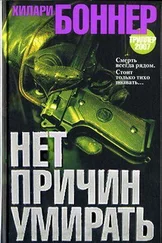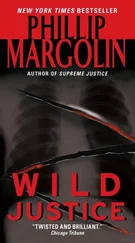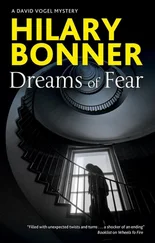She arrived at Five Tors Farm just after 1 p.m. The place was very different from the way she remembered it. Then the farm had been beautifully kept, hedgerows immaculate, gardens manicured, the farmhouse itself gleaming with fresh paint, sparkling windows, geraniums in tubs by the front door and all the other signs of tender loving care bestowed on a cherished home. The entrance had been impressive too, with that big white gate hanging from granite pillars, and an access lane which was more of a smart driveway with a smooth tarmac surface.
Now the gate, no longer white, had fallen from rusting hinges and the surface of the lane had broken up and was deeply pitted. It was all for the best that Joanna drove a BMW instead of the precious old MG, because she doubted if she could have manoeuvred the low-slung roadster safely along the lane and into the unkempt farmyard. The adjacent lawns were only roughly mown, the flower and vegetable gardens overgrown and in need of weeding, the farmhouse crying out for a coat of paint. She parked to one side of the yard by the stables, glancing towards them as she climbed out of her car. She thought they looked as if they were empty. Even the top doors to most of the boxes were closed. She could see no horses’ heads at the doors of those remaining open and neither were there any traces of the usual signs of horsy occupation. No hay or straw, no pile of drying dung.
She had heard that the Phillipses had got rid of all their horses after Angela’s death, finding the animals too painful a reminder of the young woman who had been perhaps the most enthusiastic horse lover in the entire family. It surprised her, though, that it seemed they still had not replaced them.
Mind you, she remembered what Fielding had told her, the air of neglect and abandonment which hung over the farm might not all be merely a legacy of their great tragedy. The Phillipses’ financial situation was not what it was, Mike had said. The family had no doubt been badly hit by the slump currently enveloping virtually the whole of Britain’s farming industry.
A young man wearing jeans and a T-shirt, cropped blond hair, fresh-faced, came striding out of the house, presumably having heard her car arrive. For a split second she took him to be Rob Phillips, but realised her mistake at once. Rob would be over forty now, like her. Funny how time stands still in your head sometimes. This must be his son, born prematurely a couple of months or so after Angela’s body was found.
He said ‘Hi’ in a non-committal fashion, adding, ‘I’m Les.’
Now it came back to her. The boy had been named after his dead aunt, Angela Lesley Phillips. A bittersweet reminder always for the entire family. Joanna felt sorry for him. Poor lad. What a burden he must have had to carry throughout his young life. He did not smile as he turned and led the way into the big farmhouse kitchen.
The entire family were sitting around the table. Bill Phillips had shrunk into a little old man. His wife Lillian had a lost look in her eyes. Rob stood up and shook her hand. He too had changed beyond recognition. You would expect a farmer approaching middle age to have leathery skin and a lined face, but you would also perhaps expect a certain glow of health brought about by the outdoor life. Instead, Rob looked tired and wan, almost ill. The strain sat heavily on him. He could easily have been a man in his mid-fifties rather than early forties. His wife, Mary, whom Jo remembered as being strikingly pretty, if just a little on the plump side, had ballooned. She wasn’t very tall and Jo guessed that she probably weighed sixteen or seventeen stone. Her once pretty features had disappeared into folds of fat round her neck.
Jo tried not to show her shock as, although none of the family bade her do so, she sat down and joined them. In a murder case the one who died was never the only victim. Far from it. She remembered having been told that by one of her early police contacts. It remained the grim truth.
Bill Phillips had no time for pleasantries any more, it seemed. ‘Right, you’d best tell us what you’ve come to say and get it over with. I don’t want the missus upset again without a damned good reason.’ He put an arm on Lillian’s shoulder. She barely seemed to notice, just carried on staring straight ahead in that lost and slightly bewildered way.
So Joanna told them straight. About the chance arrest of O’Donnell and about the DNA match. She gave them the probability count. Several million to one, maybe as much as ten million to one. ‘Beyond any reasonable doubt it has to have been O’Donnell,’ she said flatly. ‘A guilty man walked out of that courtroom, which I guess you have all always suspected.’
There was silence when she had finished speaking.
Rob glanced nervously at his mother who did not seem to be reacting at all. It was almost as if she had not heard a word Joanna had said. His father was fiddling with a teaspoon on the table before him, turning it round and round, staring down, intent, as if what he was doing was of vital import.
Mary Phillips spoke first. ‘I don’t see what difference it makes,’ she said, holding out her hands palm upwards, which made the fleshy parts of the tops of her arms wobble alarmingly. ‘It was more than suspecting. We’ve always known that bastard killed Angela.’
‘The difference is that now it can be proved. Beyond reasonable doubt.’
Bill Phillips looked up. ‘Is there going to be another trial, then? Is that it? So why haven’t the police told us?’
Joanna shook her head. ‘O’Donnell can’t be tried again, not for murder. Not an acquitted man.’ She explained about double jeopardy. ‘The police decided not to tell you because they didn’t want to upset you all over again when they are not in a position to do anything constructive about it.’
She could feel Bill Phillips’s tired old eyes boring into her. Red-rimmed. Just as they had so often been all those years ago. ‘That wouldn’t worry you, of course, upsetting people, would it?’ he snapped at her. ‘Your lot don’t care who you hurt, do you, as long as you get a story. So what are you after this time, that’s what I want to know? Last time you paid O’Donnell to talk to you, tell you his lies, make money out of what he did to our poor dead Angela. This time you’ve come to us. What can we possibly tell you that will make a headline in that dreadful rag you work for?’ His voice grew louder and angrier as he spoke. ‘What do you want with us?’ he shouted at her finally. Then he slumped back in his seat, breathing heavily. The exertion of his outburst took it out of him. Joanna saw Rob glance at his father with the same weary concern he had earlier displayed towards his mother.
This poor bloody family, she thought. All their lives in tatters because of this awful thing.
She took Bill Phillips’s comments on the chin. It was what she had expected and what she had tried to warn Fielding about. Bill Phillips had indeed remembered the O’Donnell buy-up and her byline. She doubted he had ever been able to forget anything concerning his daughter’s disappearance and death. Joanna could find little to quarrel with in any of the charges Bill had levelled at her. She had always been quite deeply affected by the family’s plight and by what had happened to Angela, but she could hardly expect the Phillipses to believe that. ‘I want justice,’ she said quietly. ‘That’s why I’m here. That’s why I’ve come to see you. I want justice for Angela, as I know you do. And only through you, through this family, can that be achieved.’ She knew she had attracted their attention. Each set of eyes was riveted on her.
She carried on then, explaining everything. Telling them how the CPS had turned down the police application to try O’Donnell for kidnap and rape and on what grounds. ‘But the CPS is a public service using public money. They rarely knowingly take chances, however slight. Not in the public interest is a euphemism for saying that there are other prosecutions pending with virtually no risk factor at all. I believe the CPS is being overly cautious on this one. I believe this is a situation crying out for a private prosecution. You see, the law is starting to change. Timing could be everything...’
Читать дальше












